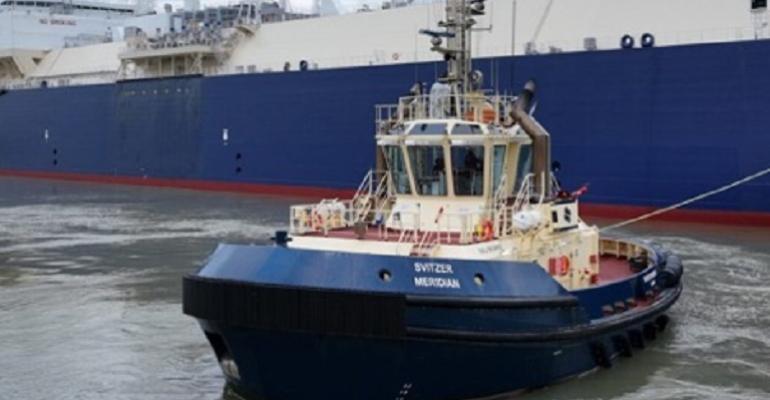The MoU follows a recent announcement from Caterpillar that its Cat 3500-E engines are now ‘methanol-ready’, thereby enabling a significant number of Svitzer’s existing vessels to undergo engine conversions.
The Maersk subsidiary aims to achieve a 50% reduction in carbon intensity across its fleet by 2030, and to become carbon-neutral by mid-century. The strategy reflects moves by parent, Maersk, to achieve similar targets, with green methanol a key element in its decarbonisation plan.
"Svitzer has a significant fleet of vessels powered by Cat systems, as well as ambitious decarbonisation targets for our future fleet,” declared Kasper Karlsen, Svitzer’s Global Chief Operating Officer. “It is therefore of utmost importance that we join forces with strategic collaborators, such as Caterpillar Marine, to find solutions for both existing and future vessels.”
The tug company’s head of decarbonisation, Gareth Prowse, commented: “Given the size and complexity of our fleet and the ambitious target we have set of becoming carbon neutral in 2040, it is critical to take a holistic approach to reducing our CO2 emissions.
“While we seek to mature and utilise new technologies, fuel types and operational approaches for new vessels, we also have to find solutions that help reduce the emissions from our existing fleet. The support Caterpillar provides in finding ways of converting our equipment to methanol usage plays a key role in this.”
Caterpillar Marine’s Andrew Perez, global tug segment manager, said: “The focus of our collaboration is two-fold. We are supporting Svitzer to enable tugs to operate on methanol with diesel-like performance while providing fuel flexibility which is key to enabling operators to lower their carbon intensity via green methanol as availability increases. Additionally, we're taking full advantage of the learnings to provide conversion solutions for the existing fleet. This is a critical aspect to reach the level of methanol adoption that Svitzer seeks to fulfil their goals.”
Copyright © 2024. All rights reserved. Seatrade, a trading name of Informa Markets (UK) Limited.
Add Seatrade Maritime News to your Google News feed.  |

